
IN AN ALMOST-HIDDEN dale in the secluded Glenelg River valley, in south-western Victoria, lies a cluster of buildings that seems, at first sight, to resemble a small 19th-century village. Set amid hilly pastureland, where sheep and cattle graze, in a valley studded with huge, gnarled river red gums, the Warrock homestead complex is a historical pastoral settlement that seems frozen in time. The heritagelisted property has an extraordinary collection of 36 remaining buildings – including stables, cottages, dining rooms, storerooms, workers’ quarters, woolsheds, a smoking house and a conservatory – that were constructed between 1844 and the mid-1860s.
Warrock lies in the heart of what explorer Major Thomas Livingstone Mitchell named Australia Felix – Latin for “fortunate” or “happy southern land” – when he led an expedition through western Victoria in 1836. Warrock station and its homestead complex are the life’s work of George Robertson, who acquired the vast 4200ha property, located about 26km north of Casterton and roughly 380km west of Melbourne (both by road), in 1844.
Born in Scotland in 1807, George, a cabinet-maker, sailed to Australia in 1840, following in the footsteps of his cousin John Robertson, who had settled a property not far from Warrock called Wando Vale. Living first in a one-room hut of rough-sawn timber, George quickly set about building his estate in the bush. The property eventually consisted of 57 buildings, constructed using mostly local timber, with rainwater stored in 15 underground brick-lined tanks. It was a phenomenal undertaking for a cabinetmaker and the labourers who worked at the property.
This story is from the May - June 2023 edition of Australian Geographic Magazine.
Start your 7-day Magzter GOLD free trial to access thousands of curated premium stories, and 9,000+ magazines and newspapers.
Already a subscriber ? Sign In
This story is from the May - June 2023 edition of Australian Geographic Magazine.
Start your 7-day Magzter GOLD free trial to access thousands of curated premium stories, and 9,000+ magazines and newspapers.
Already a subscriber? Sign In
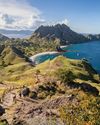
SULAWESI SENSATIONS
There are worlds within worlds and marvels untold waiting to be experienced on Indonesia's remote islands.
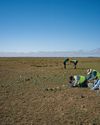
SEARCHING FOR AUSSIE DINOSAURS
Our understanding of where to find ancient life in Australia has been turned on its head by a new appreciation of the country's geology. Now the world is looking to our vast outback as the latest hotspot to locate fossils.
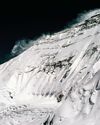
THE HARDEST NIGHT
The first Australian ascent of Mt Everest in 1984 is one of the great feats of mountaineering. Climbed by a small team semi-alpine style, with no bottled oxygen, via the Great (Norton) Couloir, it remains unrepeated 40 years later.
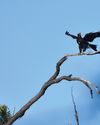
WEDGE-TAILED WONDER
The chance discovery of an eagle nest leads to an extended vigil observing normally hidden behaviours of one of nature's supreme winged marvels.
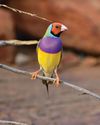
BURDENED BY BEAUTY
Northern Australia's Gouldian finch survives in huge numbers in cages around the world, but its wild population continues to struggle.
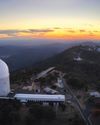
A TELESCOPE FOR A GOLDEN AGE
After a stellar 50 years as one of the country's major scientific assets, the AAT continues to play a major role in keeping Australian astronomy on the world stage.
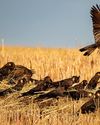
COCKY WHISPERING AT COOMALLO CREEK
This patch of remnant bush on the edge of the West Australian wheatbelt is a place loved by one of Australia's rarest bird species and the man who has studied the site for more than 50 years.

A PIONEERING PAIR
Louisa Atkinson and her mother, Charlotte, were among Australia's earliest authors, and pioneers in women's rights.
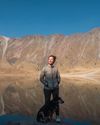
THE LONGEST WALK
Lucy Barnard is walking from Argentina to Alaska -the length of the Americas - on an extraordinary journey of endurance and adventure.
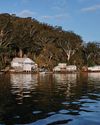
SECLUDED, BUT NOT ALONE
In an era of heightened social isolation, where many of us lead lonely lives, Dangar Island offers the chance to be part of a supportive, connected community.